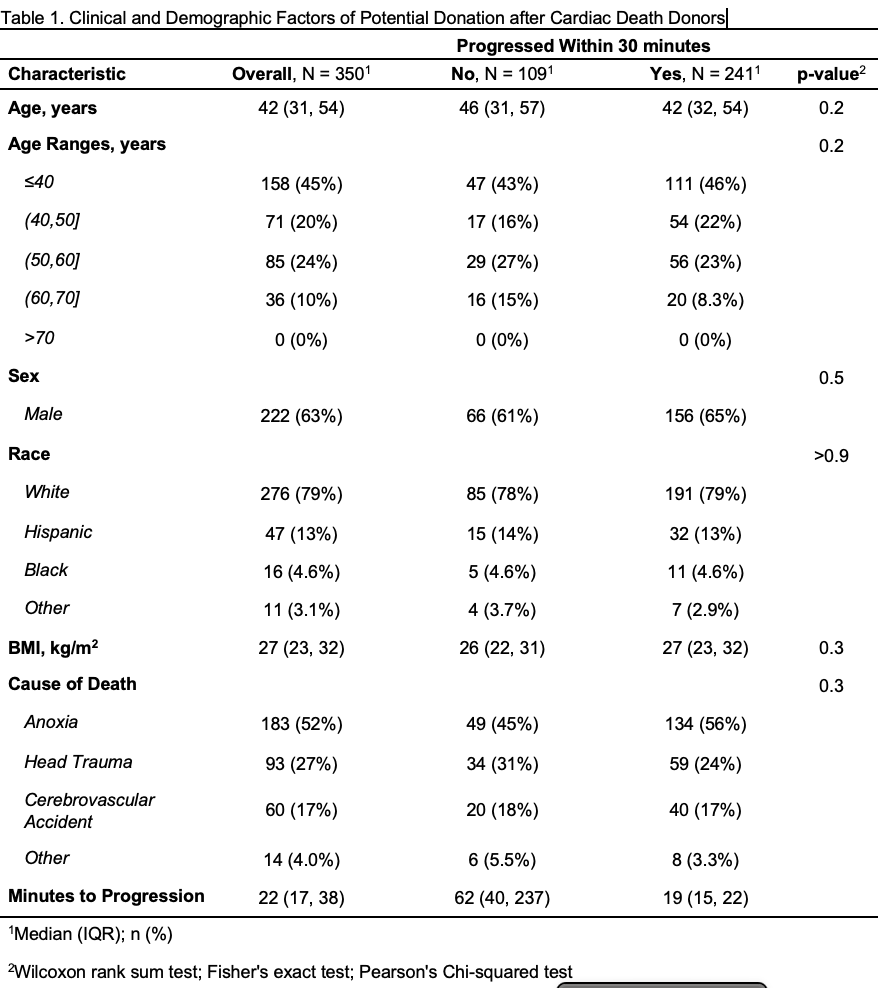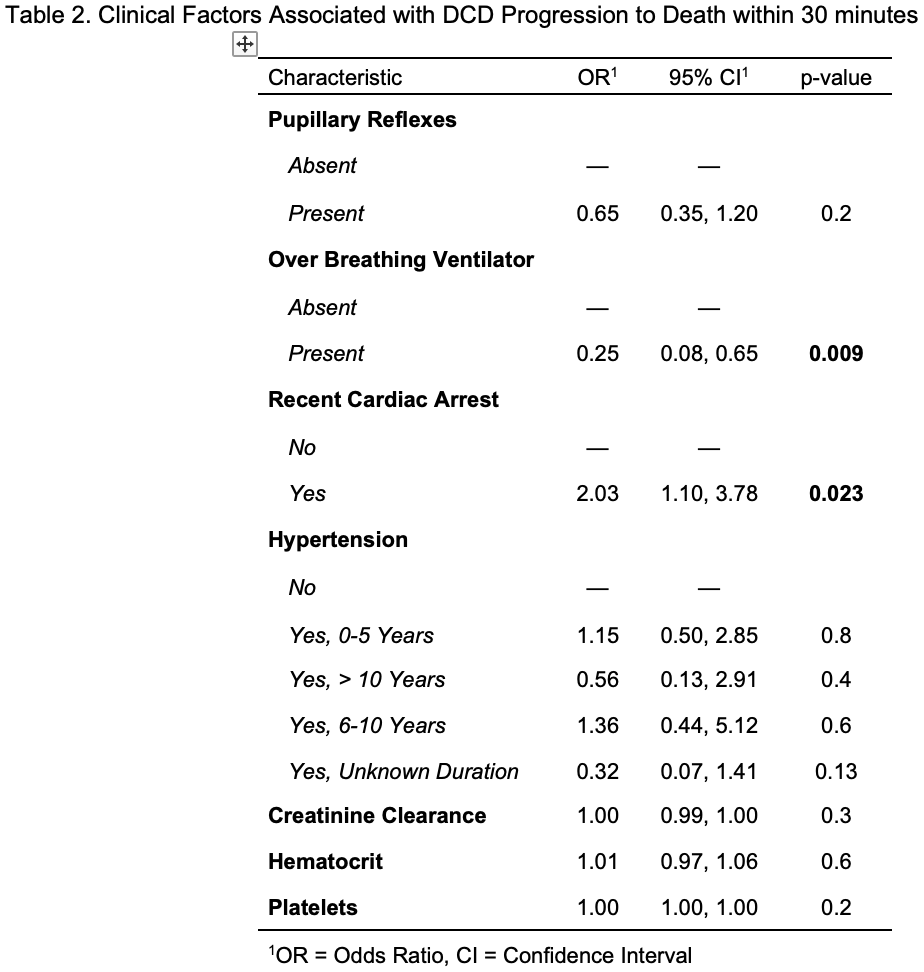Can We Predict Progression of Potential Donation After Cardiac Death Donors (DCD) Using DonorNet?
Y. Bababekov1, A. Yule1, H. Moore1, R. Choudhury2, C. Hertert3, T. Pshak4, T. Nydam5, B. Kaplan1, E. Pomfret1, J. Pomposelli5
1Transplant Surgery, University of Colorado, Aurora, CO, 2University of Colorado Hospital, Denver, CO, 3Donor Alliance, Denver, CO, 4University of Colorado, Denver, CO, 5University of Colorado, Aurora, CO
Meeting: 2022 American Transplant Congress
Abstract number: 888
Keywords: Circulatory Death, Donors, non-heart-beating, Liver grafts, Organ Selection/Allocation
Topic: Clinical Science » Liver » 59 - Liver: Expanding the Donor Pool* (Liver: MELD Allocation / Donor Issues)
Session Information
Session Name: Liver: Expanding the Donor Pool* (Liver: MELD Allocation / Donor Issues)
Session Type: Poster Abstract
Date: Saturday, June 4, 2022
Session Time: 5:30pm-7:00pm
 Presentation Time: 5:30pm-7:00pm
Presentation Time: 5:30pm-7:00pm
Location: Hynes Halls C & D
*Purpose: DCD utilization of livers is limited by unpredictability of progression, perceived worse outcome, and costs related to deployment of resources. We aimed to predict DCD progression at 30 minutes utilizing UNOS DonorNet.
*Methods: All potential Maastricht-III DCDs ≥ 18 years of age in a single OPO from 2016-2021 were reviewed. Demographic, clinical, laboratory, and systems factors were included in a multivariate logistic regression model to assess DCD progression within 30 minutes.
*Results: 350 potential DCDs were assessed. The median time to progression to death was 22 minutes (17, 38). 241 donors progressed within 30 minutes at a median time of 19 minutes (15, 22). Accounting for covariates, donors who were over breathing the ventilator were 4 times less likely to pass (95% CI 0.08, 0.65); however, donors who experienced cardiac arrest were 2 times more likely to pass (95% CI 1.10, 3.78). Discrimination was excellent with an AUROC of 0.712.
*Conclusions: DonorNet variables are independently associated with progression to death within 30 minutes and predict death with acceptable accuracy. DCD utilization of livers may be improved at the UNOS level by implementing a DCD progression tool at organ offer. Moreover, improved assessment DCD progression can optimize the need for allograft conditioning technologies.
To cite this abstract in AMA style:
Bababekov Y, Yule A, Moore H, Choudhury R, Hertert C, Pshak T, Nydam T, Kaplan B, Pomfret E, Pomposelli J. Can We Predict Progression of Potential Donation After Cardiac Death Donors (DCD) Using DonorNet? [abstract]. Am J Transplant. 2022; 22 (suppl 3). https://atcmeetingabstracts.com/abstract/can-we-predict-progression-of-potential-donation-after-cardiac-death-donors-dcd-using-donornet/. Accessed February 20, 2026.« Back to 2022 American Transplant Congress


